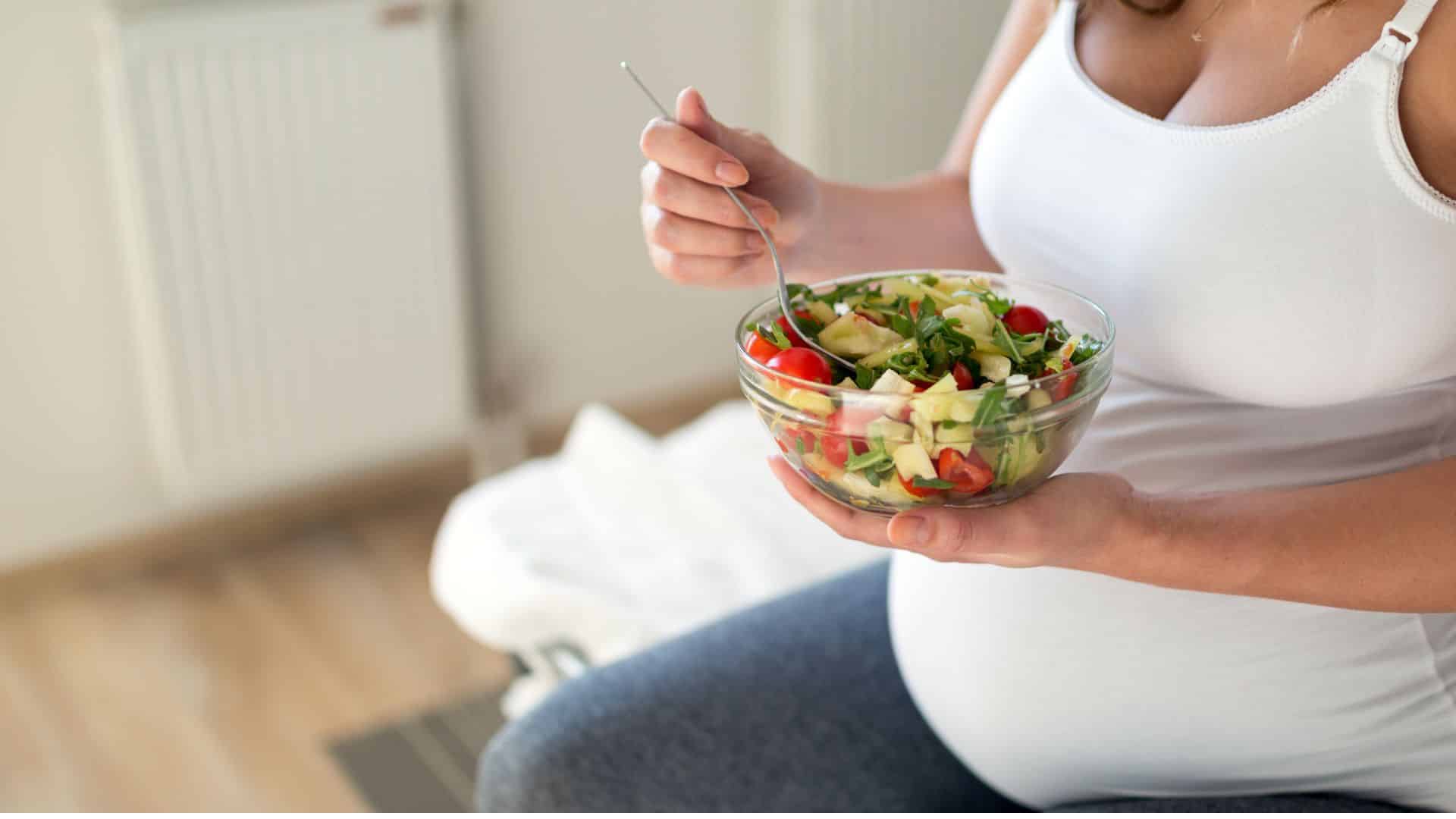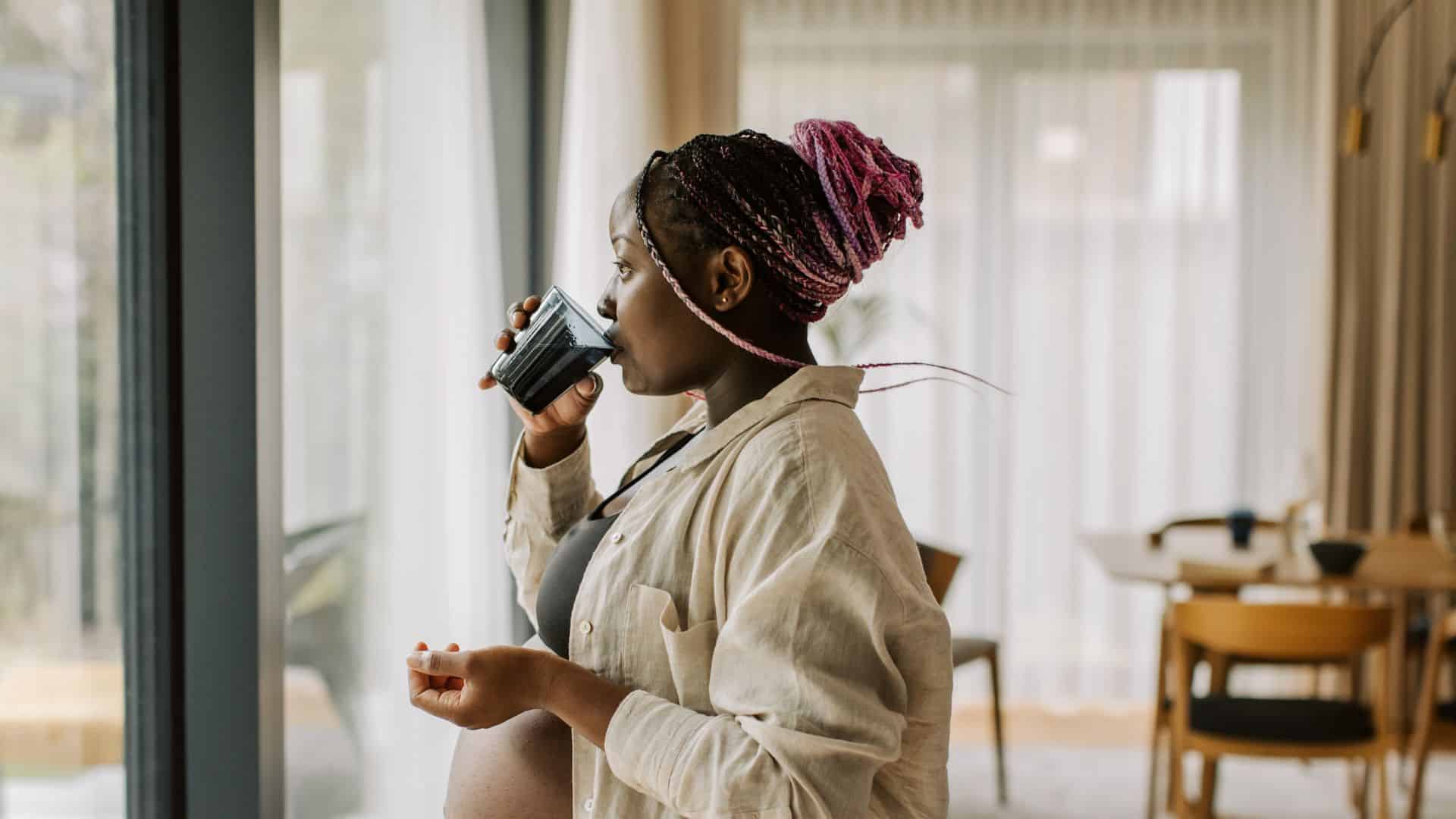Most foods and drinks are safe to have during pregnancy. But there are some things you should be careful with or avoid.
Caffeine
It’s recommended to limit your caffeine intake to less than 200mg a day (this includes coffee, tea, energy drinks, chocolate).
Regularly drinking more than this amount can increase your risk of pregnancy complications, such as low birthweight, and even miscarriage.
Alcohol
Drinking alcohol in pregnancy can lead to long-term harm to your baby.
If you’re pregnant or planning to get pregnant, the safest approach is to not drink alcohol at all. This keeps risks to your baby to a minimum.
Raw or undercooked meat
There’s a small risk of getting toxoplasmosis if you eat raw and undercooked meat, which can cause miscarriage.
Certain fish
You should limit tuna because it has more mercury in it than other fish. If you eat too much mercury, it can be harmful to your unborn baby.
You should limit oily fish because they can have pollutants such as dioxins and polychlorinated biphenyls in them. If you eat too much of these, they can be harmful to your unborn baby.
You should avoid raw shellfish because they can have harmful bacteria, viruses or toxins in them. These can make you unwell and give you food poisoning.
Learn more about food in pregnancy 



